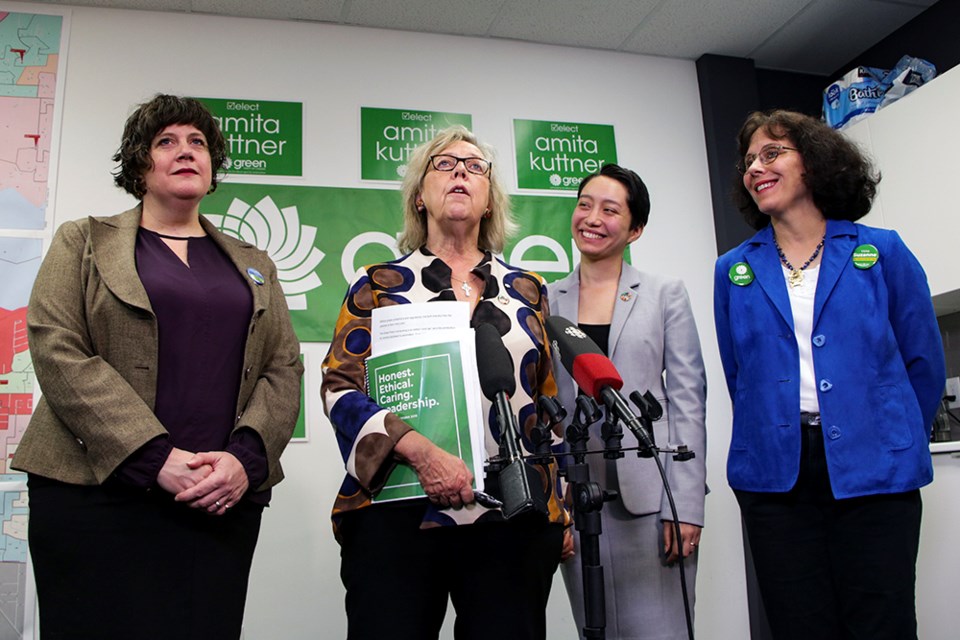A Burnaby Green Party candidate from the 2019 federal election is seeking leadership of their party following the resignation of longtime leader Elizabeth May.
Amita Kuttner, who ran for the Burnaby North-Seymour seat for the Greens, says they decided to run for the party’s leadership after hearing from a “large number of people” encouraging them to run.
With the Greens at a historic high with three members of Parliament, the next leader faces the challenge of capturing that momentum and maintaining the party’s seat count in the next election. Kuttner said they would work to achieve that by focusing on regional organizing and “really getting our messaging straight.”
Kuttner, who identifies with they/them pronouns, would be the first non-binary leader of a federal party if they take the Greens’ top spot, something they said would be good for expanding representation in Canadian politics.
“I fully believe you cannot achieve full equity before you break down the (gender) binary, because along with it goes so many ideas of what gender means, and I think if we just get to a point where people are just people, that is useful,” they said.
Kuttner said they will focus on three main issues, the first being equity and justice, which they said would be founded in decolonization.
They acknowledged the Green Party had the highest portion of white candidates of any party in the last election.
“I think the first step is to create safe and inclusive spaces, and politics is tough for that. All the parties have got problems in terms of that,” they said, adding the solution goes beyond diversifying the party’s candidate roster.
“You can't just add people and have quotas and then get where you need to go. The work that I’ve done on diversity, I’ve learned that it really is about the space you create.”
The second pillar would be “genuinely evidence-based policy,” which Kuttner may have an upper edge in with a background as an astrophysicist.
“The third (pillar) is making sure that we’re ready for the future, everything that that brings, in terms of crises and breakthroughs, whether it be technology or a catastrophe,” they said, adding they would be applying their scientific lens to developing policies.
“We need to make sure that all our policy is driven by really clear values and principles,” they said.
While the Green Party has historically claimed to eschew traditional politics, often being fiscally conservative and socially liberal, Kuttner said they are “pretty squarely on the left.” That said, they said fiscal policy they are interested in “has not yet been placed on the political spectrum because they’re newer topics.”
That includes advocating a circular economy – more reuse and recycling and using products to the end of their life – and a regenerative economy – rooting economic systems in natural systems rather than in opposition to them.
If they won the leadership, Kuttner said they would be willing to move anywhere to get a seat in Parliament, adding it would be up to the party to determine where they ran.



